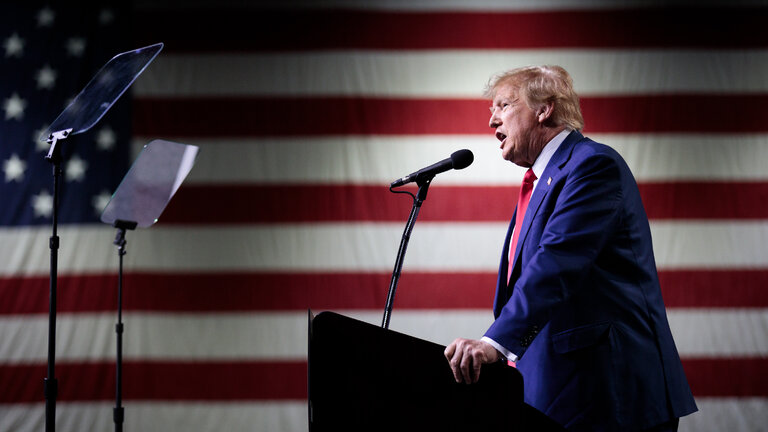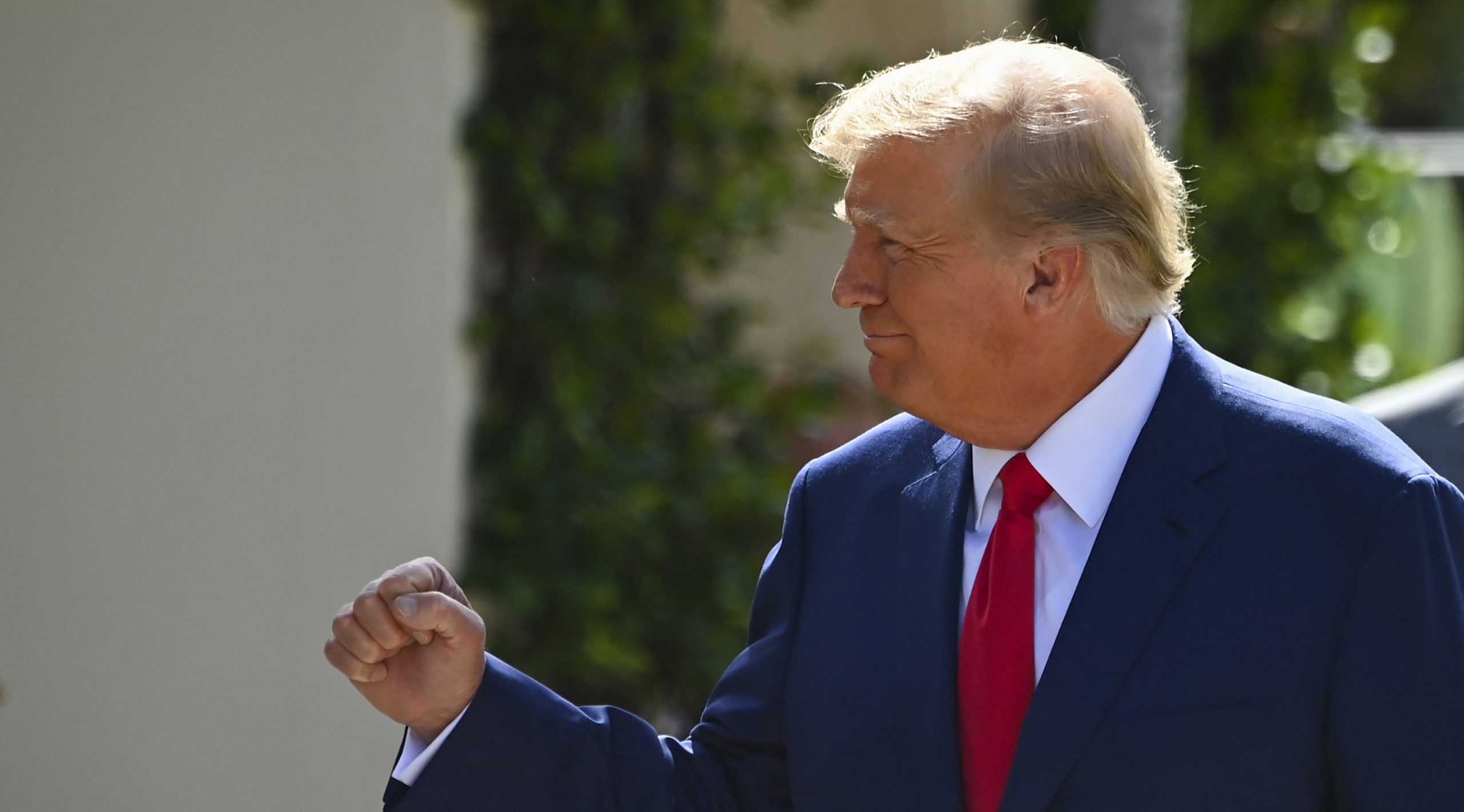Progressives and anti-populist conservatives find themselves disheartened as the likelihood of a second Donald Trump presidency grows.
Trump’s decisive victory over GOP rivals in the Iowa caucuses and Ron DeSantis’ exit from the race have positioned the former president as a strong contender against Nikki Haley in New Hampshire and beyond. National polls, such as the RealClearPolitics “poll of polls,” suggest Trump holds a 2-point lead over President Biden.
The 10 months leading up to the general election remain uncertain, with potential challenges awaiting Trump, including a formidable lawfare apparatus designed to impede his candidacy or presidency.
Despite these hurdles, the unpredictable nature of politics and Trump’s apparent luck could see him secure the Oval Office in January 2025.

Donald Trump (Credits: The New York Times)
In light of this possibility, Trump, his campaign, and the populist wing of the Republican Party must carefully consider the policy priorities that would define the 47th presidency.
Such considerations are crucial for elevating the campaign above the narrative crafted by the “defenders of democracy” who paint it as a psychodrama of an impending authoritarian threat.
A visit to the official campaign site reveals a range of proposals under headings like “Issues” and “Agenda47,” covering diverse topics from combating cartels to advocating the death penalty for human traffickers. While these proposals may resonate with many Americans, the Trump 2.0 policy roadmap requires a sense of urgency focused on pressing issues.
Trump’s earlier political success hinged on addressing urgent crises with themes like “Make America Great Again” and “American Carnage.” This time around, the policy shop must identify three key themes to unite the GOP electorate:
First, addressing illegal migration is imperative to curb the border crisis affecting not only border states but also blue cities and states, leading to disorder, strained public services, and depressed wages.
Second, restoring America’s manufacturing strength and creating an economy that prioritizes workers requires an industrial policy, steering clear of green subsidies and aligning with national development and security goals.
Third, preventing World War III is crucial. The Trump campaign and a potential second administration must articulate the risks of a confrontational approach with China, Russia, and Iran, advocating for concrete policy proposals to reduce tensions, starting with Ukraine.
While numerous other issues trouble the nation, campaigns must be prioritized. A well-defined policy roadmap not only addresses critical challenges but also ensures a disciplined administration less prone to being swayed by establishment agendas, a lesson learned from the first term.























